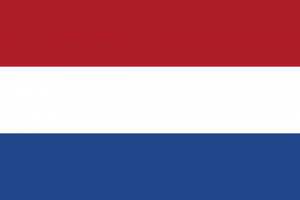Difference between revisions of "Language/Dutch/Vocabulary/Education"
m (Quick edit) |
m (Quick edit) |
||
| Line 108: | Line 108: | ||
* [https://en.wikipedia.org/wiki/Education_in_the_Netherlands Education in the Netherlands] | * [https://en.wikipedia.org/wiki/Education_in_the_Netherlands Education in the Netherlands] | ||
* [https://en.wikipedia.org/wiki/Dutch_language Dutch language] | * [https://en.wikipedia.org/wiki/Dutch_language Dutch language] | ||
==Related Lessons== | |||
* [[Language/Dutch/Vocabulary/Animal|Animal]] | |||
* [[Language/Dutch/Vocabulary/Numbers|Numbers]] | |||
* [[Language/Dutch/Vocabulary/Language|Language]] | |||
* [[Language/Dutch/Vocabulary/Art|Art]] | |||
* [[Language/Dutch/Vocabulary/Days-of-the-Week|Days of the Week]] | |||
* [[Language/Dutch/Vocabulary/Fruits|Fruits]] | |||
* [[Language/Dutch/Vocabulary/Places-in-a-City|Places in a City]] | |||
* [[Language/Dutch/Vocabulary/Body|Body]] | |||
* [[Language/Dutch/Vocabulary/Animals|Animals]] | |||
* [[Language/Dutch/Vocabulary/Drinks|Drinks]] | |||
{{Dutch-Page-Bottom}} | {{Dutch-Page-Bottom}} | ||
Revision as of 12:21, 6 March 2023
Hi Dutch learners! 😊
In this lesson, we will learn Dutch vocabulary related to education. As you know, learning a language means not only mastering its grammar and structures but also being able to talk about everyday topics such as education. Whether you're a student or a teacher, this vocabulary will help you understand and communicate about this important subject. Don't forget to practice with a native speaker! Find native speakers and ask them any questions!
Dutch Education System
Before we dive into the vocabulary, let's briefly explain the Dutch education system. The Dutch education system is divided into four levels: primary education, secondary education, vocational education, and higher education.
- Primary education (basisonderwijs): Compulsory education for children aged 4 to 12
- Secondary education (voortgezet onderwijs): Compulsory education for children aged 12 to 16, followed by two additional years of non-compulsory education.
- Vocational education (middelbaar beroepsonderwijs or mbo): Non-compulsory education for ages 16 and older, offering vocational training and apprenticeships.
- Higher education (hoger onderwijs): Varying levels of education, including HBO (University of Applied Sciences) and WO (research universities).
Dutch Vocabulary - Education
School and University
Here are some Dutch words related to schools and universities:
| Dutch | Pronunciation | English |
|---|---|---|
| School | /skol/ | School |
| Universiteit | /yni.vɛr.siˈtɛit/ | University |
| College | /kɔˈlɛɣə/ | College |
| Klas | /klas/ | Class |
| Student | /ˈsty.dɛnt/ | Student |
| Opleiding | /oː.plɛi.dɪŋ/ | Course |
Dialogue:
- Person 1: Ik ga naar de universiteit. (I'm going to university.)
- Person 2: Op welke universiteit studeer je? (Which university are you studying at?)
Teaching and learning
Here are some Dutch words related to teaching and learning:
| Dutch | Pronunciation | English |
|---|---|---|
| Leraar/Lerares | /ləˈraːr/ /ləˈraːrəs/ | Teacher (male and female) |
| Docent | /doˈsɛnt/ | Instructor |
| Notitieboekje | /noˈti.si.buk.jə/ | Notebook |
| Lesrooster | /ˈlɛs.ruː.stər/ | Timetable |
| Huiswerk | /ˈɦœy̯s.wɛrk/ | Homework |
Dialogue:
- Person 1: Mijn docent legt alles zo duidelijk uit. (My instructor explains everything so clearly.)
- Person 2: Dan moet je een notitieboekje gebruiken om alles op te schrijven. (Then you should use a notebook to write everything down.)
Exams and Grades
Here are some Dutch words related to exams and grades:
| Dutch | Pronunciation | English |
|---|---|---|
| Examen | /ɛkˈsaː.mən/ | Exam |
| Toets | /tuts/ | Test |
| Cijfer | /ˈsɛi.fər/ | Grade |
| Voldoende | /vɔlˈduːn.də/ | Pass |
| Onvoldoende | /ˌɔn.volˈduːn.də/ | Fail |
Dialogue:
- Person 1: Ik heb een voldoende voor mijn toets Nederlands. (I passed my Dutch test.)
- Person 2: Wat was je cijfer? (What was your grade?)
- Person 1: Een zeven. (A seven.)
Dutch education idioms
Dutch idioms and expressions can be a fun way to learn new vocabulary and expressions to sound more fluent:
| Dutch | Literal translation | Meaning |
|---|---|---|
| De leerlingen zijn de toekomst. | The students are the future. | Students are the future. |
| Kennis is macht. | Knowledge is power. | Knowledge is power. |
Conclusion
Learning Dutch vocabulary related to education is important to communicate about this everyday topic. To improve your Dutch Vocabulary, you can also use the Polyglot Club website. Find native speakers and ask them any questions! Practice makes perfect. 😊
➡ If you have any questions, please ask them in the comments section below.
➡ Feel free to edit this wiki page if you think it can be improved. 😎
Sources
Related Lessons
